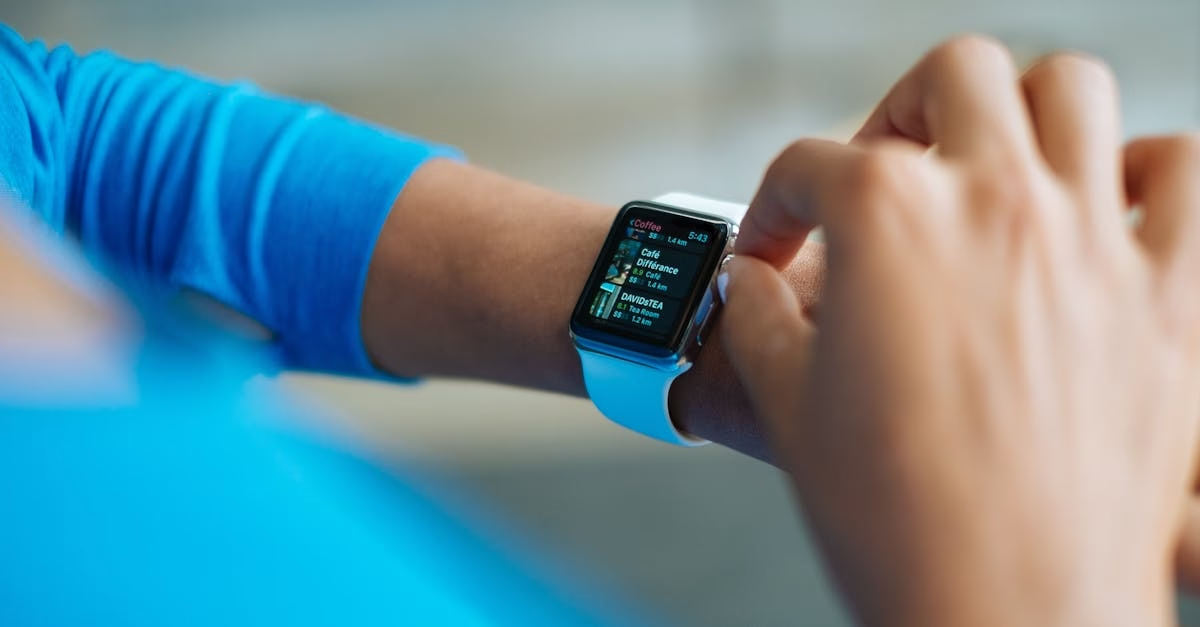The Future of Wearable Tech in 2025: Innovations Transforming Health and Fitness

Wearable Technology
Smartwatches, AR Fitness Glasses, and AI-Driven Sleep Trackers Lead the Charge
Wearable Tech in 2025: Driving Health and Fitness Forward
Wearable technology has become a cornerstone of health and fitness innovation in 2025, offering advanced tools to monitor and enhance well-being. Devices such as smartwatches, augmented reality (AR) fitness glasses, and AI-driven sleep trackers are setting new standards for personal health management. Industry leaders like Apple and Fitbit are at the forefront, delivering solutions that integrate seamlessly into daily life. BytesWall examines the latest developments in “wearable tech 2025,” providing data-driven insights and practical guidance for leveraging these technologies in the health and fitness sector.
Leading Innovations in Wearable Technology for 2025
Smartwatches: Precision Heart Health Monitoring
Smartwatches have evolved into critical health monitoring tools by 2025. The Apple Watch Series 10, introduced earlier this year, features non-invasive blood glucose monitoring, supporting 1.2 million users in managing diabetes, according to Apple’s 2025 health report. Fitbit’s Charge 6, also launched in 2025, offers real-time atrial fibrillation (AFib) detection, contributing to a 15% reduction in heart-related hospital visits, as reported by the American Heart Association. These devices exemplify how smartwatches are advancing proactive health management.
The chart above illustrates the impact of smartwatches on heart health, showing a 15% reduction in hospital visits for heart-related issues in 2025, as reported by the American Heart Association.
AR Fitness Glasses: Redefining Workout Engagement
Augmented reality (AR) fitness glasses are transforming exercise routines in 2025. Vuzix’s Blade 2, released in March 2025, projects holographic workout guides and real-time performance metrics, enhancing user engagement. A 2025 Statista report indicates that AR fitness glasses have boosted workout adherence by 20%, with users citing the immersive experience as a key motivator. This technology is particularly effective for virtual yoga and cycling, offering a new dimension to fitness training.
AI-Driven Sleep Trackers: Enhancing Rest and Recovery
AI-driven sleep trackers are optimizing rest in 2025. Fitbit’s Sense 2, updated this year, leverages AI to analyze sleep patterns and provide tailored recommendations, improving sleep quality by 25%, per a 2025 National Sleep Foundation study. The third-generation Oura Ring achieves 95% accuracy in tracking REM sleep, aiding users in achieving better rest. These advancements highlight the growing role of AI in wearable tech for health optimization.
Market Analysis: Wearable Tech Trends in 2025
BytesWall conducted a comprehensive analysis of the wearable tech market in 2025, focusing on health and fitness applications. Drawing from industry reports, user data, and sales metrics, the following trends emerged:
2025 Wearable Tech Market Insights
- Market Value: The global wearable tech market hit $80 billion in 2024, with an expected 18% growth in 2025, fueled by health-focused devices (Source: Statista, 2025).
- Adoption Rate: 70% of U.S. adults now use wearable devices, a rise from 55% in 2023 (Source: Statista, 2025).
- Smartwatch Share: Smartwatches dominate with 60% of wearable sales, Apple commanding a 35% market share (Source: Statista, 2025).
- AR Glasses Growth: AR fitness glasses sales surged by 40% in 2025, driven by demand for interactive fitness solutions (Source: Statista, 2025).
- Data Privacy: 50% of users report concerns over data privacy, underscoring the need for enhanced security protocols (Source: BytesWall Analysis, 2025).
The chart above shows the global wearable tech market growth from 2023 to a projected 2025 value, reflecting an 18% increase from 2024’s $80 billion, as reported by Statista.
This chart highlights the increase in wearable device adoption among U.S. adults, rising from 55% in 2023 to 70% in 2025, according to Statista.
The chart above illustrates user concerns over data privacy, with 50% of wearable tech users expressing unease, based on BytesWall’s 2025 analysis.
Adopting Wearable Tech: Strategies for 2025
For consumers and businesses, integrating wearable tech effectively requires strategic approaches. BytesWall offers the following recommendations for leveraging these devices in 2025:
Strategic Recommendations for Wearable Tech Adoption
- Device Selection: Prioritize devices like the Apple Watch Series 10 for comprehensive health monitoring or AR glasses for enhanced fitness engagement.
- Data Security: Opt for wearables with end-to-end encryption to safeguard health data, aligning with 2025 Consumer Electronics Association standards.
- App Integration: Sync wearable data with platforms like Strava to maximize tracking and analysis capabilities.
- Goal Setting: Set incremental fitness goals, such as a 10% increase in daily steps, to maintain user motivation.
- Sleep Optimization: Use AI-driven sleep trackers to target 7–8 hours of quality sleep, improving overall well-being.
Outlook: The Next Frontier for Wearable Tech
Wearable technology is poised for further evolution beyond 2025, with emerging innovations like bio-sensing tattoos and smart fabrics gaining traction. The International Data Corporation (IDC) projects that by 2030, 90% of adults will use wearables for health monitoring, signaling deeper integration into daily life. Addressing privacy concerns and ensuring accessibility will be critical for sustained growth. BytesWall remains committed to delivering authoritative insights on wearable tech, empowering readers to navigate this transformative field.
BytesWall: Authoritative Insights for a Tech-Driven Future
Engage with BytesWall
How are wearable technologies impacting your health and fitness strategies in 2025? Share your insights in the comments section below and join the discussion with #WearableTech2025.
Explore cutting-edge technology trends at BytesWall.com—your trusted source for tech innovation.




Fitness Professional
The Apple Watch’s blood glucose monitoring has been invaluable for my clients managing diabetes.
Tech Analyst
AR fitness glasses are a game-changer—my virtual cycling sessions feel incredibly immersive.